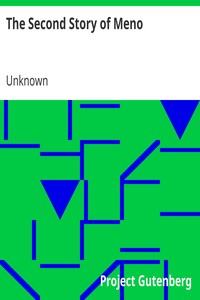| Summary |
"The Second Story of Meno" by Unknown is a philosophical dialogue likely written during the classical period of ancient Greece. This work serves as an extension of the earlier "Meno," traditionally attributed to Plato, and delves into mathematical concepts, particularly the irrationality of the square root of two. The dialogue features Socrates and Meno as they engage in a conversation aimed at demonstrating how a young boy can arrive at profound mathematical truths through guided questioning and logical reasoning. In this continuation, Socrates aims to prove that the square root of two is irrational, utilizing a boy who had previously shown promise in understanding geometric concepts. Through a method of questioning, Socrates leads the boy to explore various groups of rational numbers, systematically eliminating all but the possibility of the square root of two being a rational number. The boy articulates his reasoning, culminating in the realization that the square root of two cannot be expressed as the ratio of two whole numbers, which successfully earns him his freedom and a reward. The dialogue emphasizes the importance of critical thinking, the process of learning through questioning, and the value of intellectual discovery. (This is an automatically generated summary.)
|

